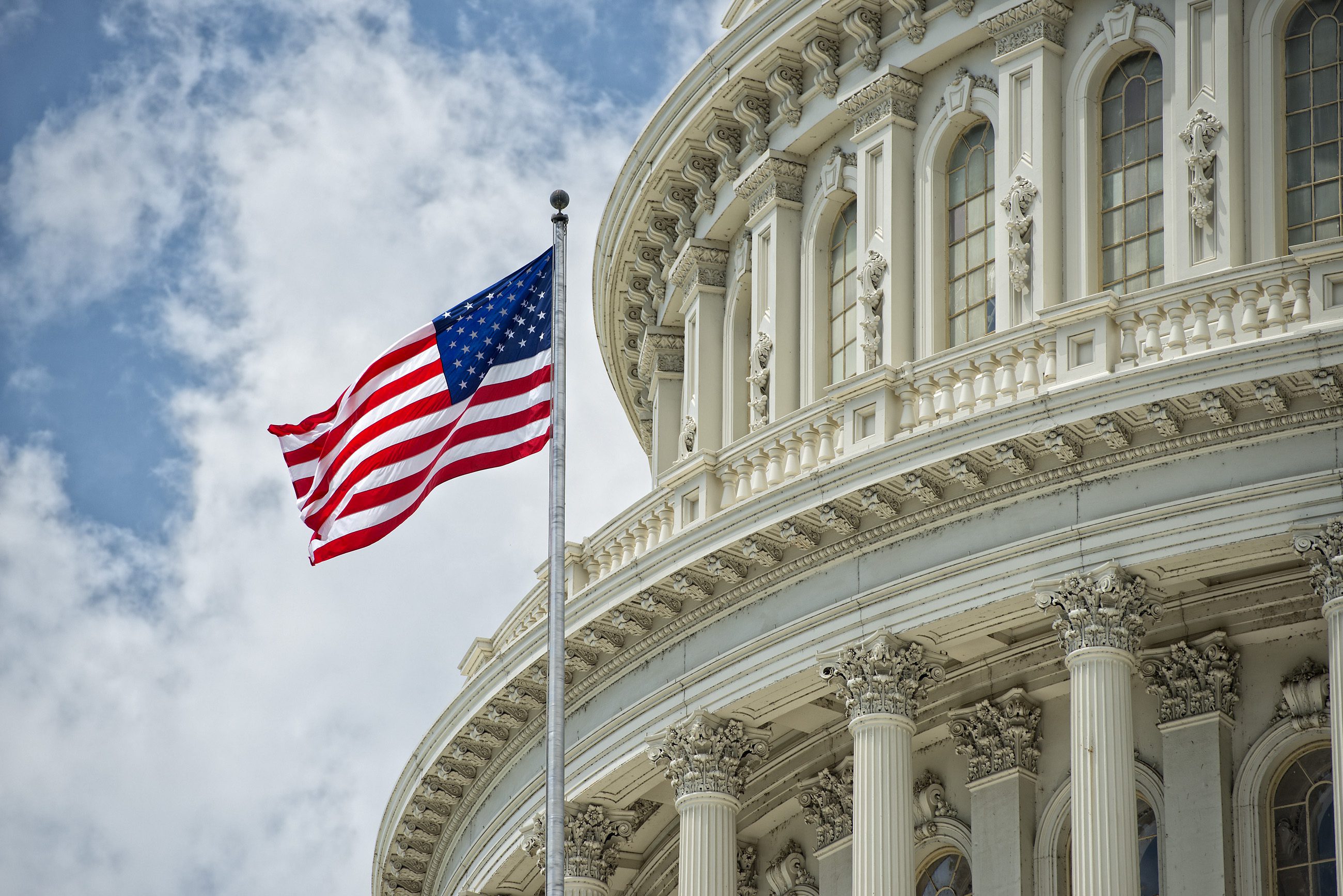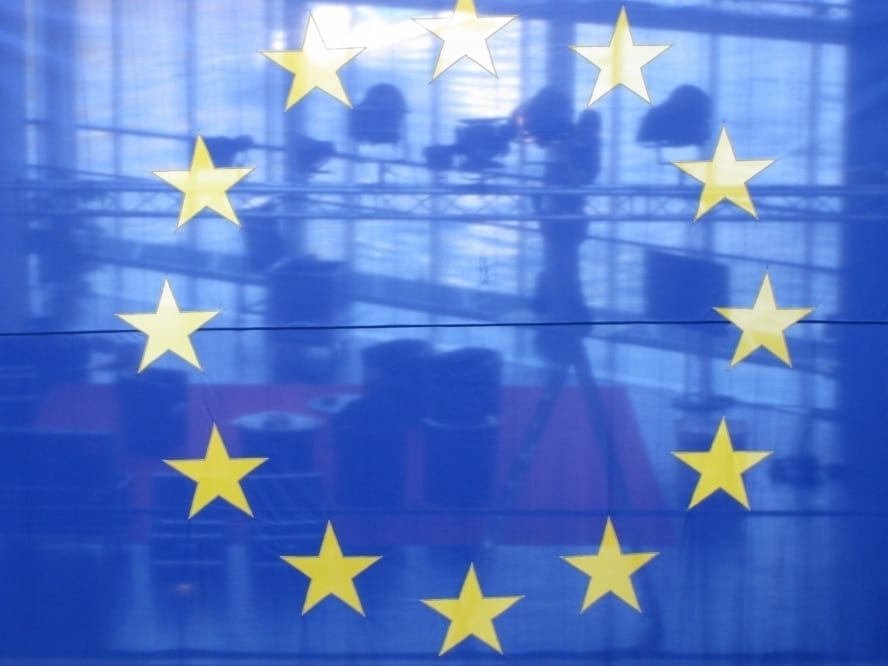Interview Bob van Heuvelen: public affairs after the US elections
On the day after the American elections, Public Matters spoke with Bob Van Heuvelen, Founder and CEO of Van Heuvelen Strategies in Washington, DC – one of Public Matters’ international partners. Together we looked ahead to a new presidency and what it means for public affairs professionals in- and outside Washington. And of course, you can’t look ahead without looking back on four years of Donald Trump and his impact on the public affairs profession in the U.S. Van Heuvelen Strategies Associates Bobby Cunningham and Sam Yntema also joined the conversation.
Contrast
“There couldn’t be a more dramatic contrast,” Bob Van Heuvelen starts off. While the world watched Trump toss aside the Paris Agreement, call out NATO, and revisit international trade agreements, we can now expect a radical turnaround when Joe Biden takes office: “American presidents normally color within the lines of the rule of law – with Biden we expect a return to stable government and processes.” Therefore, one of Biden’s international policy priorities is to rejoin the Paris Agreement. “We also anticipate that the Biden Administration will re-initiate multilateral trade negotiations with its European and Asian allies. This also illustrates what the world can expect on U.S. trade policy: a focus on trade agreements and climate objectives.”
Familiar faces
As an agency, Van Heuvelen Strategies has built up a broad network of contacts. A change of presidential administration need not have a dramatic impact on this. Although several new political faces will appear, many of the career civil servants will remain the same. Biden will put a couple of familiar faces in high positions. Moreover, Biden is a stable political figure, which means that the connections will likely be more long-term. “The people under Trump were more difficult to get to know, not in the least because they were replaced very quickly,” notes Van Heuvelen. The figures confirm this: Trump has the highest ‘turnover’ in recent American history: 91% of his ‘A-Team’ has been replaced since he took office.
FOX news
“One clear way in which our industry’s work will change,” adds Bobby Cunningham, “is in the tactics behind the strategy — the Trump Administration operated in a very centralized manner with respect to decision making that originated inside the White House and those within the president’s immediate orbit.” Cunningham grew up in Washington and started at Van Heuvelen Strategies at the tail end of the Obama Administration. He noted an industry-wide shift in the primacy of data driven lobbying of officials who have been around town for a long time to tactics more focused on making an impression on a select group of political aides and confidants after Trump took office: “What can we do to get this on the president’s radar and in front of his eyes? Should we get drinks at the Trump Hotel tonight, and how do I get reported on FOX News? How do I get the president to tweet about this issue in a way that is positive for a client’s interests or negative to a competitor’s? How can we tie our message to President Trump’s campaign promises and his reelection hopes?” And this is a logical move, since from early on in his tenure, the president’s Tweets have been considered ‘official Presidential statements’. For example, the Washington Post recently wrote about a fundraising meeting for Trumps’ election campaign – where the president’s first policy pledges appeared on Twitter mere hours later. “A transition to Biden does not mean a full return to Obama-era strategies,” notes to Van Heuvelen. According to him, Biden will have to figure out how to use the new media situation and expectations of his supporters to his advantage.
Creature of Washington
A similar middle ground is expected from a new administration and its view on professional influence. “Obama had a strict anti-lobbying policy,” notes Van Heuvelen. The expectation is that Biden will partially pick this up where Obama left it. Trump was much more receptive to business influences: according to ProPublica, Trump had 281 lobbyists working under him in 2019, and OpenSecrets reports a clear increase in lobby spending since he took office. But Obama and Biden’s anti-lobbying policy should also be viewed in perspective: “Obama had about 70 former lobbyists in his administration, and I think President-elect Biden will be keenly aware of the need to dispel perceptions of corruption as well as America’s desire to root out undue influence. Indeed, the transition team has already placed waiver requirements on lobbyists seeking to shape the new administration. Ethics and good government should and will take priority in a Biden Administration,” notes Cunningham, and Van Heuvelen also sees Biden as a “Creature of Washington.” In short, we anticipate that lobbying will remain a critical part of any corporation’s advocacy strategy.
Lobbying Presence
“The expectation is that the coming years will continue to be dominated by a suspicion of the ‘foreign lobby’,” says Van Heuvelen, “who do you work for, and what are you doing for them?” remains a frequently asked question. Of particular significance are foreign government clients, who are subject to special scrutiny under American law. In addition, more attention will be paid to the “revolving door”, especially regarding who rotates out of the Trump government and into the business world.
Business as usual
For international trade, global changes will be noticeable in the long term. In the short term, however, it is business as usual. “Trump’s rhetoric was to get jobs back to the US, and Biden won’t flip 180 degrees on this. However, we do expect a more balanced and climate-focused trade policy.” Even the critical view of large multinationals with a lot of market power will not change much – according to Van Heuvelen, this is not a partisan issue: “We would anticipate that the Biden Administration will be more inclined to view large corporations in a way that is more in line with the European attitude.” Just as is the case worldwide.
Collaboration
The partnership with Van Heuvelen Strategies in Washington is part of the further growth of the public affairs & lobby consultancy Public Matters. This partnership enables Public Matters to better anticipate transatlantic issues in both Europe and the United States, and to actively exchange trends and knowledge in the field of public affairs between the United States and Europe. In our blogs we follow transatlantic developments in the field of public affairs.






